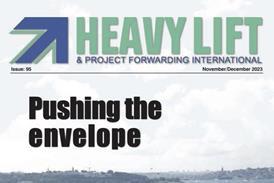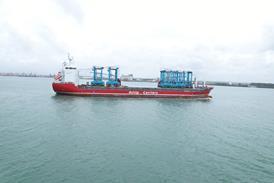A survey conducted by global shipping consultancy Drewry reveals that there is considerable unease among global shippers/beneficial cargo owners (BCO) and freight forwarders ahead of the IMO’s sulphur 2020 emissions regulations.
Due to come into force on January 1, 2020, the global sulphur cap on marine emissions will cut allowable sulphur content from 3.5 percent to 0.5 percent.
Particular concern was expressed by respondents in both the survey and follow-up interviews about carriers’ methods of fuel cost recovery, said Drewry. More than half of all respondents (56 percent) stated that they did not consider their service providers’ existing approaches as either fair or transparent.
Four in every five of the shippers/BCOs participating in the survey stated that they had yet to receive clarity from their providers as to how the widely anticipated future fuel cost increases, set to accompany the 2020 regulatory change, would be met.
According to Drewry, the level of uncertainty expressed in the survey is so large that nobody is able to provide a confident forecast of the cost of compliance; the only certainty is that the extra cost will run into billions of dollars globally come 2020.
Based on independent predictions about the future prices, low-sulphur marine fuel prices per tonne will be 55 percent higher than current high-sulphur fuels and Drewry considers that the probable worst case scenario is that fuel costs (paid by carriers) and fuel surcharges (paid by shippers) in global container shipping will increase by 55-60 percent in January 2020.
“The IMO low-sulphur rule change represents a very significant, industry-wide, change event which will likely have far reaching effects on the global shipping industry for many years to come”, said Philip Damas, head of Drewry Supply Chain Advisors.
“Given the scale of the extra costs triggered by the new regulation and the carriers’ expectations that their pricing and fuel charge mechanism with customers must be restructured, there is a need for carriers to address the transparency concerns expressed by their customers.”
www.drewry.co.uk















